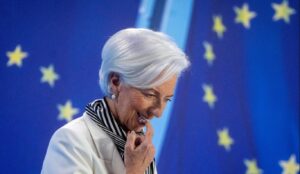South Korea exchanges protest after regulator bans cross trading
2 min read [ad_1]
Digital currency exchanges in South Korea have been in a pickle the past couple of months, and the latest regulatory move is bound to worsen the situation. According to local reports, the country’s financial watchdog has outlawed cross trading on digital currency exchanges. This will cause significant disruptions and pile on the already skyrocketing operations costs, the exchanges claim.
The Financial Services Commission has continued to tighten regulations pertaining to digital currency exchanges in South Korea. In its latest, aside from banning cross trading activities, the regulator has ordered the exchanges to store at least 70% of their customer deposits in cold wallets. This is meant to protect these assets from hackers at a time when several smaller projects have been exploited and had their funds drained.
However, for the exchanges, it’s the cross trading ban that has upset them the most. Cross trading is a practice in which a buy and sell order are matched by a broker or a platform without reflecting on the order book. In most jurisdictions, this practice is illegal as it opens the door for manipulation. Even in setups where it’s not outlawed, there are limitations on how and when to use it.
South Korean exchanges have been relying on this practice for a while now, with the FSC turning a blind eye to it.
According to local outlet Newsis, Korean exchanges claim that the ban could have a significant effect on their capital inflow. Already, these exchanges, especially the smaller ones, are contending with dwindling business and heightened regulatory requirements. They claim that they have been relying on cross trading to convert some of the digital currencies into the local fiat currency, the won.
One exchange official told the outlet, “In order to convert the cryptocurrency received as a fee into KRW, you have no choice but to sell the cryptocurrency at your place of business.”
To cope with this ban, the exchanges would have to create new businesses to convert the digital currencies into Korean won. However, this would increase the overheads by some margin as local laws are prohibitive of such businesses.
The official further pointed out that the ban creates another problem—the payment of taxes. In South Korea, one can only pay taxes in the Korean won. However, with no way to convert their digital currencies to the local fiat currency, the exchanges would have to turn to expensive alternatives such as borrowing fiat with digital currency collateral.
Regulations have continued to take their toll on digital currency exchanges in South Korea. As CoinGeek reported, Daybit exchange announced recently that it was shutting down, blaming the regulations. According to Daybit, regulators have put in place measures that only seem to favor the Big Four—Korbit, Coinone, Bithumb and Upbit.
New to BTC? Check out CoinGeek’s BTC for Beginners section, the ultimate resource guide to learn more about BTC—as originally envisioned by Satoshi Nakamoto—and blockchain.






